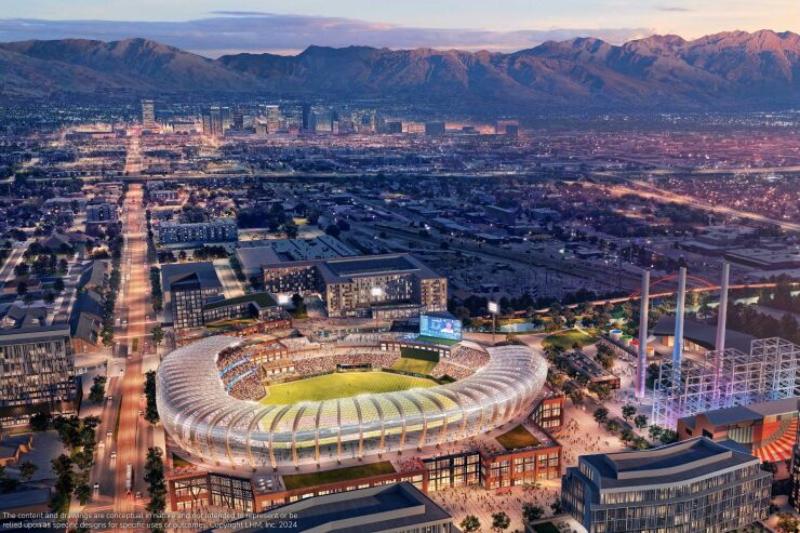
The Major League Baseball team is coming to Utah, and the Utah Legislature has revealed a plan to assist in building a stadium.
Even though using public funds for it is upsetting to some, legislators argue that it is an investment in Salt Lake’s west side and that taxes from out-of-state visitors will cover the majority of the costs.
The state is proposing to create a dedicated entertainment district from Interstate 80 between 1000 West and Redwood Road, rather than merely providing funding for a stadium, as stated in a recently released bill called HB562.
It shall be governed by a board that may impose various taxes in order to obtain funds. Appointees to that board include the governor, the speaker of the House, the president of the Senate, one member of the Salt Lake Council, and one member of the Fairpark Board.
The state’s hotel taxes would increase, but legislators say this will help pay for emergency services in rural areas.
The bill permits an increase in fees for things like rental car rentals and transient rooms. A sales and use tax on energy, a tax on telecommunications licenses, a tax on accommodations and services, and a tax on sales and use in resort communities are among the other taxes included in the bill.
“All the money that will be used is money that we think will be generated from the increased activity that will come to Utah. So, it’s basically a transit room tax, which is hotels and car rental tax and then tax within the project area,” Senate President Stuart Adams said. “So, we believe that will, actually, the baseball stadium will actually create more revenue than we will pay, and out-of-state residents will pay for it.”
The development’s property taxes would also be used to finance the construction of additional amenities and infrastructure in this particular Fairpark district. Adams stated that they view this plan as a local investment.
“A rising tide lifts all boats and I think you’ll see the tide rise,” he said.
The Larry H. Miller Group, the team’s owners, receives the money raised as a loan to construct the stadium. The stadium’s rent will subsequently be covered by the team owners from the state. The state will own the stadium, but the group has also contributed their own $3.5 billion.
“We negotiated the fact we will own the stadium. That’s a big deal,” Adams said.
The bill as written now allows bonding for “half the actual cost” of planning and building the stadium. There must be parking, plazas, open space, lighting, and a minimum of 30,000 seats. The bill also mandates that the team owners reimburse the district for any taxpayer funds used if the team departs the area before 30 years have passed.
There are just seven working days remaining for lawmakers to amend and approve this bill before the end of the current session.
May is Small Business Month, a time to honor and recognize the achievements of the… Read More
Swiss International University (SIU) is on track to be one of the world's most respected… Read More
In a session that left students buzzing with fresh ideas and practical insights, Invertis University… Read More
At the 21st Shanghai International Automobile Industry Exhibition, which is surging with the wave of… Read More
Liverpool, UK—House of Spells and Comic Con Liverpool are once again collaborating to bring the… Read More
Introduction In India's booming EdTech space, there's one name that's making waves among Telugu students… Read More